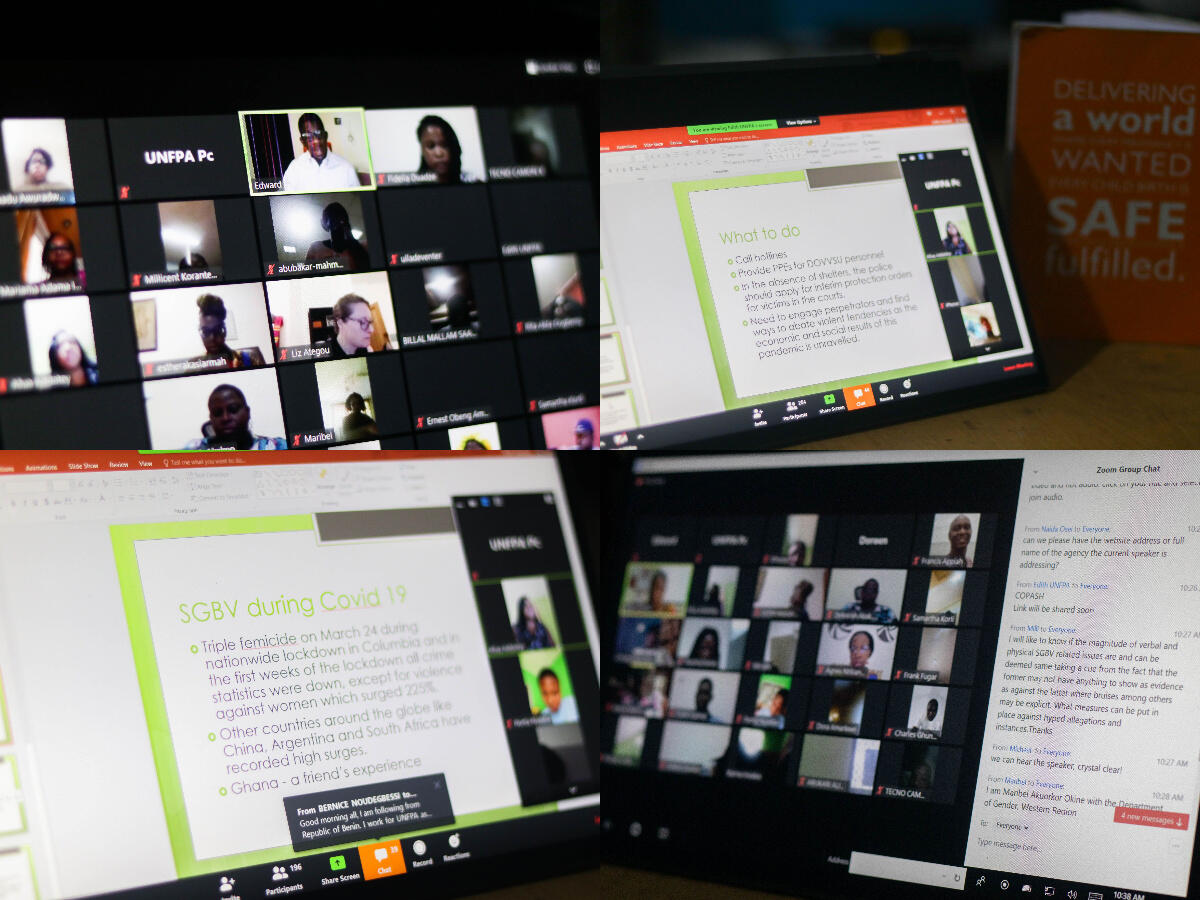On 22nd April, 2020, UNFPA Ghana held an e-Session on Sexual and Gender-Based Violence (SGBV), with the aim of raising awareness among the general populace of acts of SGBV and channels of seeking redress, as well as to highlight the implications of the COVID-19 outbreak for SGBV prevention. The virtual space interactive session was done in collaboration with the Domestic Violence and Victims Support Unit of the Ghana Police Service, and the Coalition of People Against SGBV and Harmful Practices (CoPASH).
The Representative of UNFPA, Mr. Niyi Ojuolape said that aim of the e-Session was to contribute to awareness creation, especially in light of restricted movement due to COVID-19. According to him, reports from other countries have shown increase in domestic violence and intimate partner violence, mostly against women. Thus, UNFPA deemed it important to act pre-emptively, and hold discussions on these issues highlighting possible causes and solutions with the objective to see what the available resources are to ending SGBV, and the existing gaps in the COVID-19 response.
The e-Session was characterized by presentations from three resource persons. Ms. Afua Addotey, the Director of the International Federation of Women Lawyers (FIDA Ghana) and a member of the Domestic Violence Management Board, spoke on sexual and reproductive health (SRH) and SGBV in the midst of COVID-19. In her submission, she indicated some causes of SGBV to include extreme expressions of gender-based inequalities, which studies have shown are linked to certain gynaecological problems and obstetric complications. In her view, protection orders are an under-utilized provision of the DV Act, which allows survivors of violence to have safe shelter, by lawfully removing perpetrators from the residence.
Madam Doreen Pokua-Gyau, a board member of CoPASH, in her presentation, threw light on the Coalition and its work since it was launched in 2018 by the Second Lady of Ghana, H.E. Samira Bawumia, in collaboration with UNFPA. So far, the work of the Coalition (which comprises stake holders from varied fields of expertise), has prioritized raising support for the completion of the DoVVSU one-stop-shop, and also strengthening the court systems to support judicial recourse for survivors of SGBV.
Chief Superintendent Owusuaa Kyeremeh, the DoVVSU Coordinator highlighted the role of DoVVSU in ending domestic violence. She explained that, the role goes beyond traditional police work. Not only do they do investigations and prosecution of domestic violence cases, they also do some form of sensitization for SGBV prevention in schools, market places and other organisations. She cautioned that although DoVVSU sometime provides psychosocial support to survivors of domestic violence, it is not the unit’s responsibility to act as a mediator for familial or marital problems, as some people believe.
The e-Session saw widespread participation of multiple stakeholders and the general public, with no less than 230 participants. It is was a very engaging event where questions poured in from participants during the open forum discussions. Due to the success of the workshop, there is popular request for a follow-up workshop to engage participants more extensively on how to curb sexual and gender-based violence and harmful practices, even with the COVID-19 crisis.


